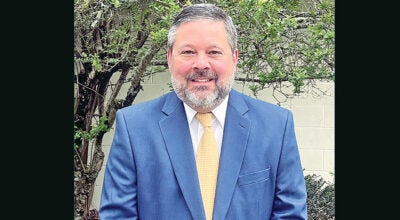Water district viewed as way to get supply to Macedonia hill
Published 12:00 am Sunday, September 29, 2013
BURLINGTON — If the price is right, setting up an independent water district could be the way to start getting water to just under 60 households on Macedonia Road hill.
Currently none of those homes have ever had running water and rely on wells or water brought to storage tanks on their property.
Recently, the Fayette Township Trustees and the Lawrence County Commissioners met with Albers and Albers, a law firm from Columbus to find out how to set up a non-profit water district.
“The county commissioners said they would help us defray the cost of setting up a water board,” Fayette Township Trustee Mike Finley said. “You have to have hearings and we could expand it if another place in the county could use water, the water district could facilitate it.”
Cost of setting it up could range from $15,000 to $30,000.
“We are waiting for a quote from the Columbus attorney,” Finley said. “We need a number — $15,000 to $30,000 doesn’t really fly.”
The advantage of having a water district independent of the county or township is that it could get grants easier, Finley said.
Along with getting running water to those households on the hill, would be building filling stations on either side of the hill to provide water for fire trucks.
“It would be way cheaper than hydrants and it will still help us,” Finley said.
Right now the most water all the township’s pumper trucks can bring to a fire at one time is 2,000 gallons before going back to refill.
“That’s like spitting in a big river,” Finley said. “We have a great fire department but you have nothing to fight a fire with.”
The plan would be to erect filling stations on the Buffalo Creek and Solida Road sides of the hill.
In the next two months the trustees expect to secure rights of way for running the pipe up the hill.
Commission President Bill Pratt called turning to the Columbus attorneys as the right solution since they have set up water districts in different parts of the state.
“They have the experience,” Pratt said. “A regional water district keeps the politics out of it. There would be a board that would set the rates. The county wouldn’t necessarily be in control of it.”





